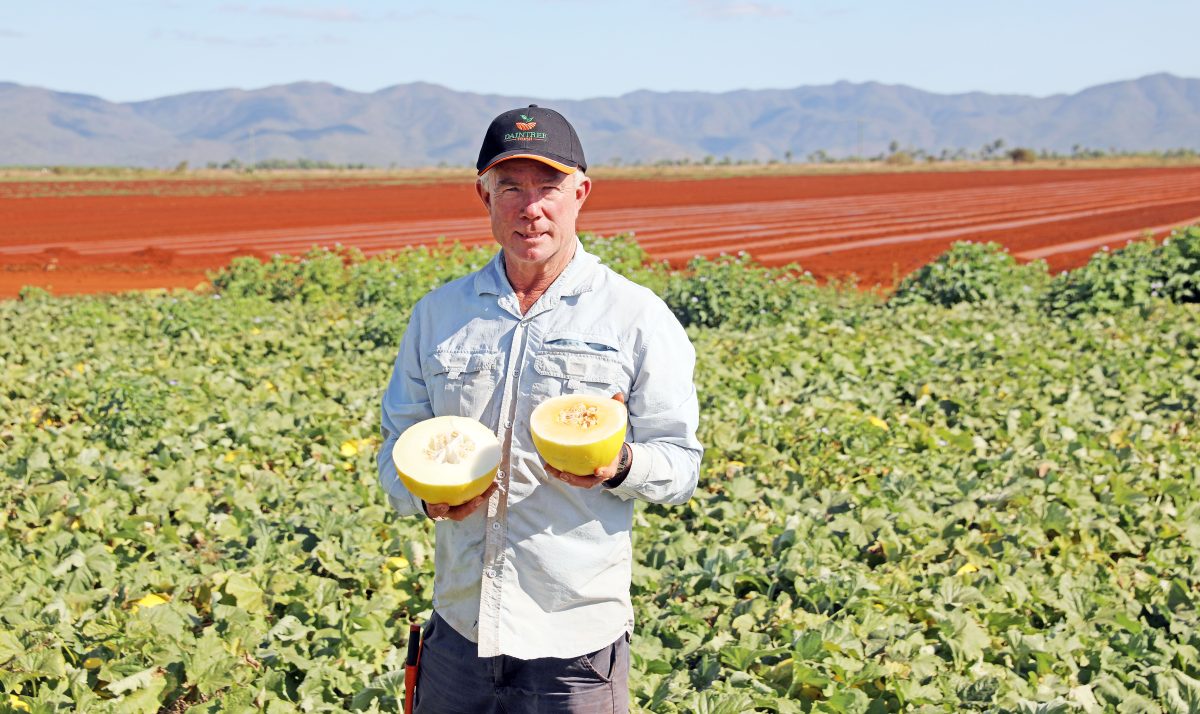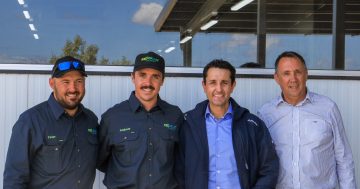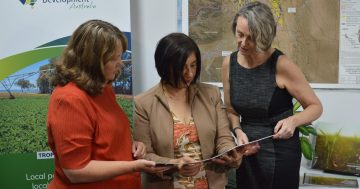
Daintree Fresh director Shaun Jackson is trialling a new melon export to Japan.
THE first commercial shipment of Emperor’s Pearl melons from Daintree Fresh farm will hit shelves in Japan this year, as the Lakeland-based grower expands an export trial that started three years ago.
Boosted by funding from the state government, Daintree Fresh director Shaun Jackson created the new white-fleshed melon specifically for export.
“We were told they use rockmelons and honeydews and orange candy melons, so my answer for the Japanese market is a sweet, tasty fruit that gets there in good shape and remains in good shape for 20 days,” Mr Jackson told Cape York Weekly.
“We set up trials three years ago and got a really good response from the Japanese market, so this year we have set up a program to increase to a fairly large commercial quantity.”
Mr Jackson, whose background is in seed and plant genetics, said the challenge was to grow a melon that maintained its quality over the long trip to stores overseas, and also finding new and improved ways to handle the fruit to help that process.
“We have been doing a whole lot of treatments on the fruit already, and some more will be coming into play in the next few months on our first harvests,” he said.
“We will be trialling a heap of different things and by the time these fruit get (to Japan) we will have the answers we need.”
Mr Jackson said Daintree Fresh focused on sustainable, natural methods of growing, pest management and fruit handling and preservation.
“Our aim is to look at the cultural practices the farm uses to produce fruit with a longer shelf life,” he said.
“We are looking at how we grow, the nutrients we use, the post-harvest treatments.
“We use probiotics on the soil, bugs to control our insects, lots of organic carbons in the ground and we feed them with good bacteria out of capsicums, chilli, garlic and so on.
“This grant will helps us drill down on which of the many different applications and trials will ensure a good shelf life for the shipping to Japan.”
The farm’s commitment to natural processes had won over buyers in Japan, Mr Jackson said.
“It’s 50 per cent of the reason we’re getting business in Japan.
“It’s as much about the quality of the melons as the story of our farm, what we’re working towards and how we try to do things naturally and improve our soil.”






